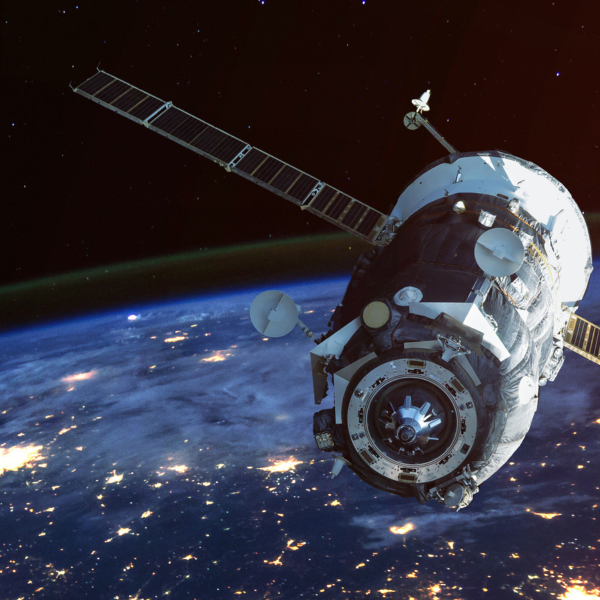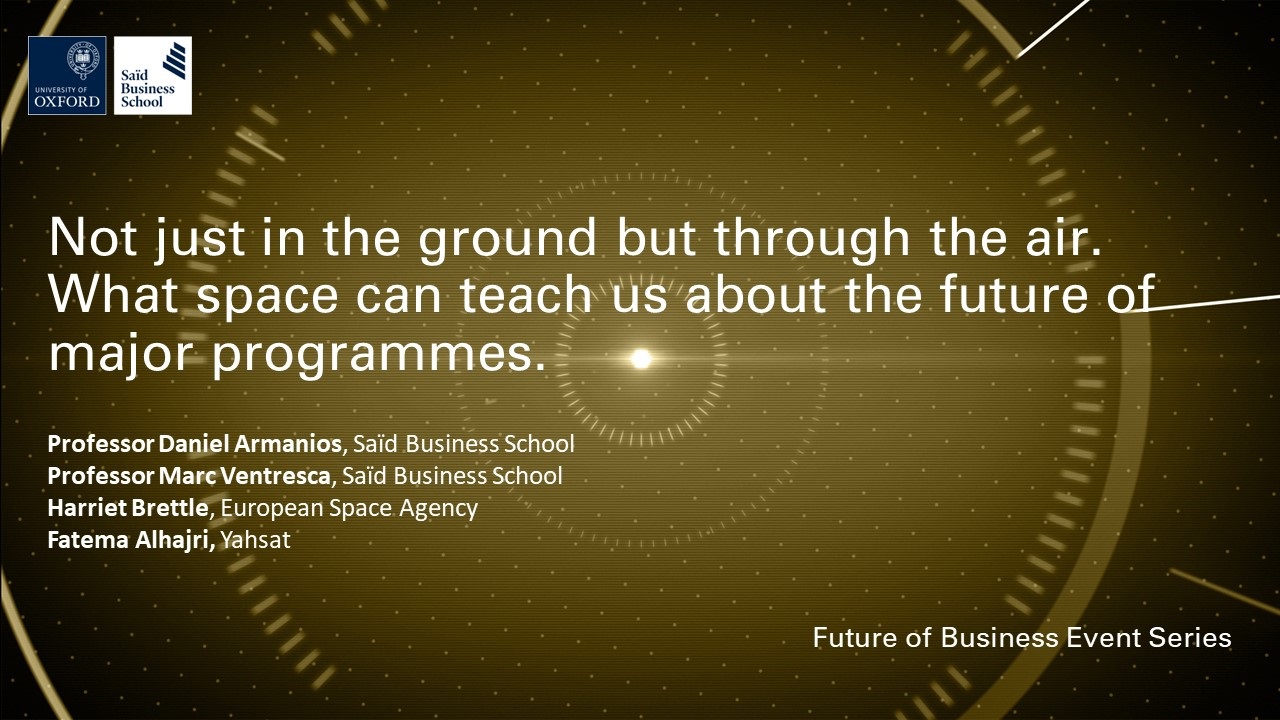What can developments in the space economy teach us about tomorrow’s major programmes?
Complex, decentralised, distributed: this is increasingly how major programmes are being described, in contrast to the centralised and standardised mega-projects of the past. But those adjectives are also applicable to the emerging field of space commerce, in which new technologies and private companies are building on traditional government-led, exploratory space missions to create new products and services for those of us on Earth.
What can the two fields learn from each other? And how can both address the challenges of coordinating globally and shaping governance in a constantly changing environment? This latest panel event in the Oxford Smart Space series features four speakers who contribute insights from different areas of expertise.
Speakers
Professor Daniel Armanios, Saïd Business School
Professor Marc Ventresca, Saïd Business School
Harriet Brettle, European Space Agency
Fatema Alhajri, Yahsat (Al Yah Satellite Communications Company)
In a wide-ranging and occasionally myth-busting discussion, we hear about:
- Managing satellites in low Earth orbit. It may feel that governance structures in space are nascent at best, but in fact there are clear rules and processes managed by the International Telecommunications Union to ensure that satellites do not collide or interfere with each other.
- Increasing ‘verticalisation’ by large companies such as SpaceX. They build their own satellites; they launch and operate them; and they provide the ensuing service to the end customer as well. This has benefits but, as the panel discussed, many challenges too.
- The continuing problem of debris. This has been a recurring theme throughout the Oxford Smart Space series: who is responsible for removing satellites and other equipment that is no longer usable, and how can we accelerate and use the technology that allows for re-use and in-orbit refuelling and servicing?
Reflecting on the explosion of trade and empire-building that came with the trend for maritime exploration and founding of the East India Company in 1600, Marc Ventresca expresses his hope that ‘space is giving us a fresh start, a fresh way to look at large-scale globally coordinated activity; not the solutions but a venue, a laboratory to understand those things’.

